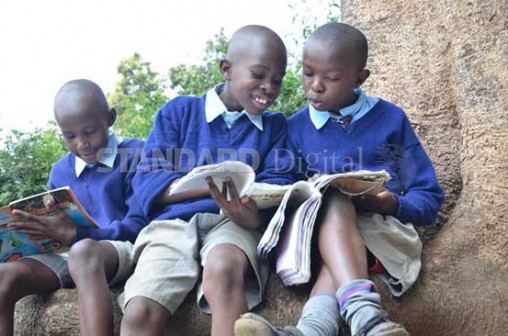
A new study has recommended use of mother tongue during teaching for at least six years of early learning to boost academic performance. The report says that teaching children in ‘a language other than their own’ negatively impacts their learning.
The policy paper dubbed ‘If you cannot understand, how can you learn,’ says learning is slow if teaching is conducted in a language other than the one used at home by the children. The report finds that international and regional learning assessments confirm that when home and school languages differ, there is an adverse impact on test scores. “In many countries, large numbers of children are taught and take tests in languages that they do not speak at home, hindering the early acquisition of critically important reading and writing skills,” reads the report. The findings are contained in the 2016 United Nations Educational, Scientific and Cultural Organisation (UNESCO) Global Education Monitoring (GEM) report.